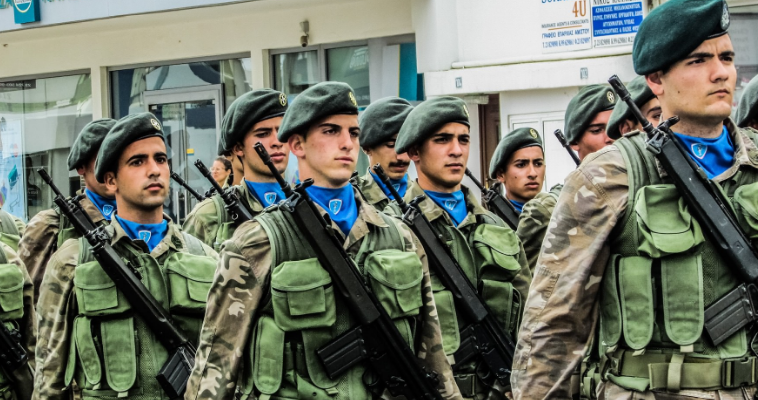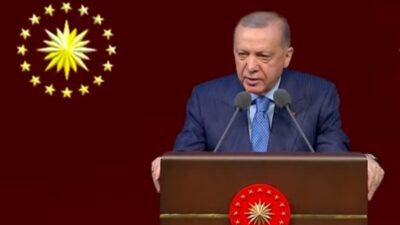Giorgos Margaritis: Why the Greek Armed Forces will cease being an effective deterrent
20/07/2020
The persistent research and drilling activity of Turkey, in combination with the permanent presence of Turkish warships in the seas south of Cyprus, created faits accomplis and overturned de facto rights and the sovereignty of the Republic of Cyprus in this area. As the Turkish leaders correctly calculated, the reactions of the USA, the EU, Israel, but also of those opposed to the West, Russia and China, were limited to verbal condemnations, and often times ambiguous.
The British Minister for Europe, Alan Duncan, in fact, had then spoken of areas of “questionable sovereignty”. In a more careful manner, however, but in the same vein were statements by American officials concerning the need for win-win agreements between Greek Cypriots and Turkish Cypriots, as well as between Greece and Turkey. The Turkish moves, then, achieved their goals, perhaps something more.
What happened took no one by surprise. The Turkish positions had been formulated for many years and had – from time to time – been formally submitted with maps, plans, concessions and diplomatic moves. The Turkish moves had been persistently announced. In fact, the consistency between words and deeds has been a significant part of Ankara’s policy in recent years, and it is important to remember this for the future.
What is happening in the Cypriot EEZ should have troubled leaders in Athens concerning what Ankara has announced will happen in the Greek EEZ. In other words, there has been ample time to formulate policies to address the threats and to secure the means to address them. The bitter truth is, however, that neither the Greek nor the Cypriot side was consistently prepared to deal with the Turkish moves either in the field of goals and aspirations or in the field of planning.
Greek fantasies
As a result, reactions were dramatically below the level of gravity of what had transpired, were predictable on the Turkish side, and amounted to a declaration of weakness and resignation. They simply paved the way for the next stage of the implementation of the publicly proclaimed Turkish plans. It is indicative that the Turkish Ministry of Foreign Affairs has clearly presented the Turkish positions through maps and texts.
The edifice on which Greek and Cypriot politics had been built proved fragile. In the field of alliances, Athens’ expectations turned out to be fantasies. Greece and Cyprus had shown persistent activity in serving any desire of the US, NATO or Israel. Facilities and bases were shared generously.
The exhausted Greek armed forces were quick to take part in any NATO operation. Greek warships reached the shores of Crimea, undermining Greece’s traditionally moderate policy toward Russia. It is assumed that all this willingness would bring benefits from the American side. It brought nothing.
Greece is losing its deterrence
This willingness, however, has other less visible side effects. The most serious is that it diverts military capabilities from the threat to the nation and diffuses it towards other, non-nationally controlled directions. In essence, it weakens the deterrent power of the armed forces in the face of what is happening. Their capabilities in the field of high-tech weapons were mainly built on the logic of serving allies – “protectors” and not on the logic of dealing with attacks against Greek sovereign rights.
Greece has one of the largest fleets of non-littoral frigates in the world at the same time as it is unable to assert its power and assert its sovereign rights, a few nautical miles away from Crete, Rhodes or Cyprus. The frigates lacking area air defense capabilities perform well in NATO exercises – since this lack of air defense is covered by allied ships – but are unable to respond to Turkish intrusions.
Greece has one of the strongest air forces in the world, but without being able to prevent the systematic collapse of its sovereign rights in its airspace through the countless violations, breaches and overflights of its neighbors. And all this, when huge amounts were wasted and spent – in relation to the size of the country – so the country could have a military tool, but the Greek arsenal is completely incompatible with the existing threats.
Inadequate arsenal
At the heart of this blatant contradiction lies the same logic of “willingness.” The country has created a classic arsenal for the Western Alliance, too heavy and large, in order to best serve its allied obligations, considering that through this commitment to the allied idea it also secures its national interests.
This is perhaps the only country in recent history that has dedicated itself wholeheartedly to an alliance in order to protect itself from another member of the same alliance! To achieve this, it built armed forces that were exactly the same in structure, tactics, operation and logic as those in the country that threatens it. And since these forces are similar to each other, the question of correlation and consequent deterrence becomes simply a matter of magnitude.
This policy probably made sense until the end of the Cold War. Until then, the military mechanisms of Greece and Turkey were built to face the common enemy, the Soviet Union. And the figures were comparable: Greece spent about $ 5.65 billion on its military (in 2017 prices, SIPRI data) and Turkey about $ 9.4 billion, which was a ratio of about six to ten. Almost thirty years later the ratio has been completely turned on its head. In 2018, Greece spent $ 4.93 billion on military spending (2017 prices) and Turkey $ 22.1 billion. The ratio has reached two to something like ten!
The proportions have changed dramatically, but the structure and philosophy of the defensive options remained the same. The opposing forces are still the same in structure and other characteristics. But as sizes have changed dramatically and the gap between the financial investment of the two countries has widened dramatically, any credible deterrent is being canceled or has already been canceled.
Greece is stagnant, Turkey is innovating
A military mechanism that absorbs comparable amounts of yours leads you to second thoughts about the use – or the threat of use – of the military tool to achieve political goals. A military mechanism, however, based on an economic area five times smaller than yours, pushes you to demonstrate, perhaps even use, a military tool. This is what Turkey is doing on increasingly unfavorable terms for Greece.
Greece, seeing its choices leading to a stalemate, should have changed the structure and characteristics of its military tool. It is paradoxical that Turkey is doing this to further strengthen itself. The development of the war industry, the construction of ships based on national needs (especially the Anadolu class corvettes will be a school for construction and technology), the purchase of the S-400, the planned redevelopment of its air fleet, etc.) form a coherent design that will give the Turkish armed forces special national characteristics, increasingly distant from their NATO counterparts.
In a short time the Greek choice to pursue deterrence on the basis of the same mechanisms and means will no longer make sense. Interceptions and blockades in the Aegean cannot have the same deterrent function when this airspace is under the threat of S-400s. It is obvious that these problems do not concern the political elites of Greece. There are explanations for this, that there we will not seek to develop the rationale here.
Many maintain silence so as not to be exposed to this ocean of nonsense and ostrich-like agnosticism. But something needs to be done, not just in the matter of defending national affairs. In history we have many cases where the elites gave up their homeland and their people in exchange for their own survival. If history moved only by their own pace then, quite simply, there would be no more homelands. And yet the latter exist. Should we perhaps look into this?





